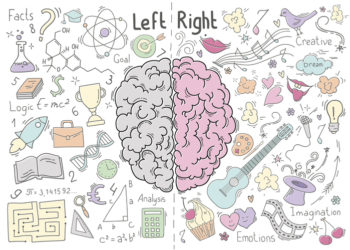Music therapy and dementia.

Perhaps you clicked through to read this post because you’re curious as to how music therapy could help your loved one.
For families who have a loved one with dementia or Alzheimer’s, interacting with that loved one becomes difficult as the days go by.
No matter who you are, this can be frustrating.
How do you get a reclusive dementia patient talking? How do you get them excited about life?
Music could be the key to all of that.
In a viral YouTube video, an organization called Music & Memory showed how a male Alzheimer’s patient who had been non-verbal came to life after they played music from his younger days.
So how does music therapy work?
And how may it work for your loved one who has dementia or Alzheimer’s?
That’s the focus of this post.
Music Therapy and Dementia – How It Works
Although several portions of a person’s brain are damaged when they develop dementia or Alzheimer’s, music is still powerful
Music is unique because it sparks responses from different regions of the brain.
You know how a particular song can come on your radio while you’re driving and all of a sudden you are exported to a specific time, place and even smell?
The same thing happens for your loved one when you play music they enjoyed back in the day. And in this case the music can cause them to break out of their shell and interact like you’ve never seen them.
In 2012, researchers from the University College London showed that over the course of 263 research studies show that there is a link between music therapy and an improvement in mood and behavior of dementia patients. This was reported in the International Journal of Geriatric Psychology.
A study among moderate to severe Alzheimer’s patients in Iceland showed that music successfully reduced aggressiveness and anxiety. The effects of the music however went away after the music therapy was stopped for four weeks. This indicates that if you choose to use music therapy for your loved one, it has to be continuous to see positive effects.
How can you help?
So how can you help to make music therapy a part of your loved one’s life?
Well for one, you might not always the need of a trained music therapist (yes, there are specific professionals who do this!) but if your loved one’s insurance allows for it, go for it!
What can a music therapist do for you?
A music therapist will assess your loved one and then design music sessions for your loved one based on their needs. Doing this helps them measure how effective the sessions are.
Don’t have access to a music therapist? It doesn’t mean they cannot benefit from music therapy.
You could start out by playing familiar tunes for your loved one through the television, computer or portable music device.
The studies I cited above suggested, the benefits of playing music for patients with dementia/Alzheimer’s disease include:
- A decrease in aggressive and/or disruptive behavior
- An improvement in mood
- Encourages interaction even for patients who might be recluses
- May help with depression which is common in people who have dementia
- A decrease in anxiety
- Because music interacts with multiple areas of the brain, it could trigger pleasant memories and stimulate great conversation
Closing Thoughts
Although dementia and Alzheimer’s are still incurable, there are many interventions that can improve the life of a patient.
Music therapy is one of those interventions. It is backed by individual reports as well as research to be effective.
Have you tired music therapy for your loved one with dementia?
Was it effective?
If you found this post useful, consider sharing it with someone else that could use it.
